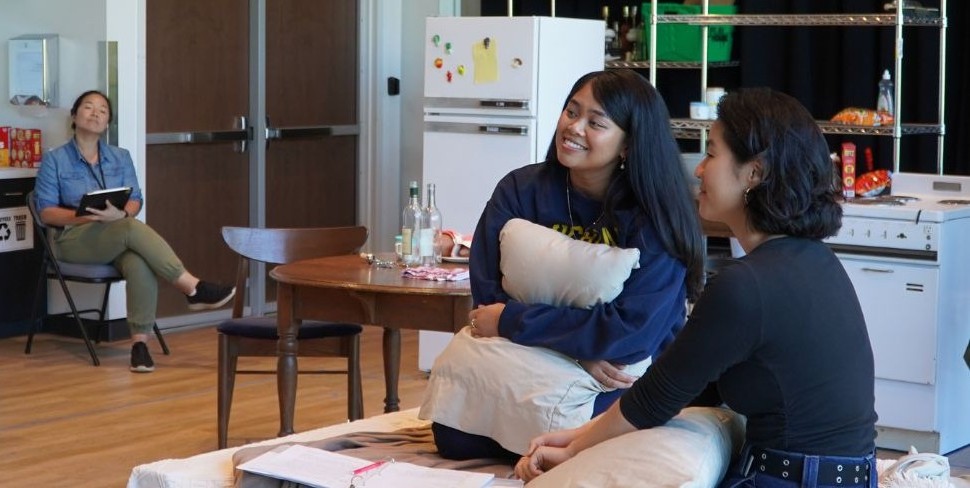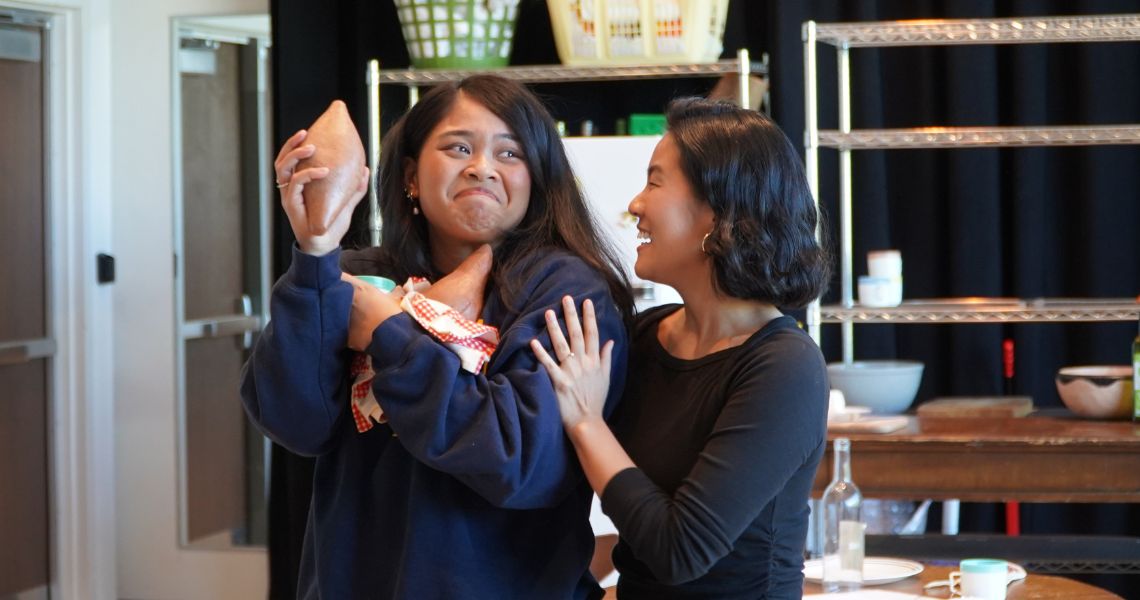A Seat at the Table

Thanksgiving Day, 1973: in a modest American apartment, two women who hardly know each other attempt the impossible — cooking a frozen turkey in two hours. Luna, from the Philippines, and Jane, from Korea, are both new to the country, both married to overworked medical residents, and both left alone on a holiday that loudly insists on togetherness. What begins as a desperate culinary experiment spirals into an evening of wine, disco daydreams and Disneyland fantasies.
In Lloyd Suh’s The Heart Sellers, those playful beginnings grow into something sharper and more resonant: a funny, tender, deeply human story about friendship, identity, and the small ways immigrants carve out belonging in a country that so often overlooks them.
The title points back to a 1965 piece of legislation that quietly reshaped the nation. Sponsored by Senator Philip A. Hart of Michigan and Representative Emanuel Celler of New York, the Hart–Celler Act swept aside America’s old immigration quotas based on national origin. In their place came a framework that prioritized highly skilled workers and gave preference to those with family already in the U.S. The effects were immediate: immigration nearly doubled, with almost half a million people arriving annually in the years that followed. Luna and Jane, fictional though they are, step onto American soil thanks to this very law, their lives woven into its legacy.
For director Desdemona Chiang, this history is not just backdrop but personal memory. Her own mother emigrated from Taiwan in the wake of Hart–Celler, and those stories helped her imagine what life might have been like for characters such as Luna and Jane. Chiang also invited her cast to draw from their families:
“The actors, in particular, asked their moms about what it was like coming here. Because for most immigrant kids, you kind of forget, because we're so self-absorbed and we're so interested in our own identity here, you kind of forget that our parents had an entire life before you existed. The entire version of themselves that they left behind in order to reinvent who they are, to make it work in this country.”

Angeleia Ordoñez (Luna) and Bridget Kim (Jane) in rehearsal.
That process of remembering and reimagining is at the beating heart of The Heart Sellers. Though set in the midst of the political upheavals of the Nixon presidency, Suh doesn’t deliver a history lesson. Instead, he narrows the focus to a single evening in a single apartment. We watch Luna and Jane’s tentative friendship unfold in real time — through halting conversation, sudden bursts of laughter, and the awkward intimacy of two strangers willing to take a chance on connection. It’s a portrait of bravery measured not only in miles crossed but in doors opened.
Even the title carries quiet irony. Hart–Celler widened America’s doors, but it also reinforced the idea of immigrants as commodities — valued first for their skills, labor or potential economic contributions. That theme resonates with audiences who saw Suh’s The Chinese Lady, produced in the Rosenthal Shelterhouse during the 2022–2023 season. In that earlier work, Suh told the story of Afong Moy, believed to be the first Chinese woman in the U.S., placed on display for curious American audiences in the 19th century. If The Chinese Lady exposes how Asian bodies were exoticized and commodified in public spectacle, The Heart Sellers finds its power in the private sphere, asking what it means to claim joy, dignity and friendship in everyday life.
Together, the plays highlight Suh’s gift: tracing the tension between how America sees its immigrants and how immigrants see themselves, while mining the humor and resilience found in that space.
In the end, The Heart Sellers poses a simple but urgent question: who sits at our tables, and who waits outside the door? It reminds us that the American story has always been one of arrivals, reinventions and patchwork traditions stitched together from many homes. And it offers, in Luna and Jane, a vision of belonging that transcends culture and language — a reminder that sometimes, even an undercooked turkey can mark the beginning of a feast.